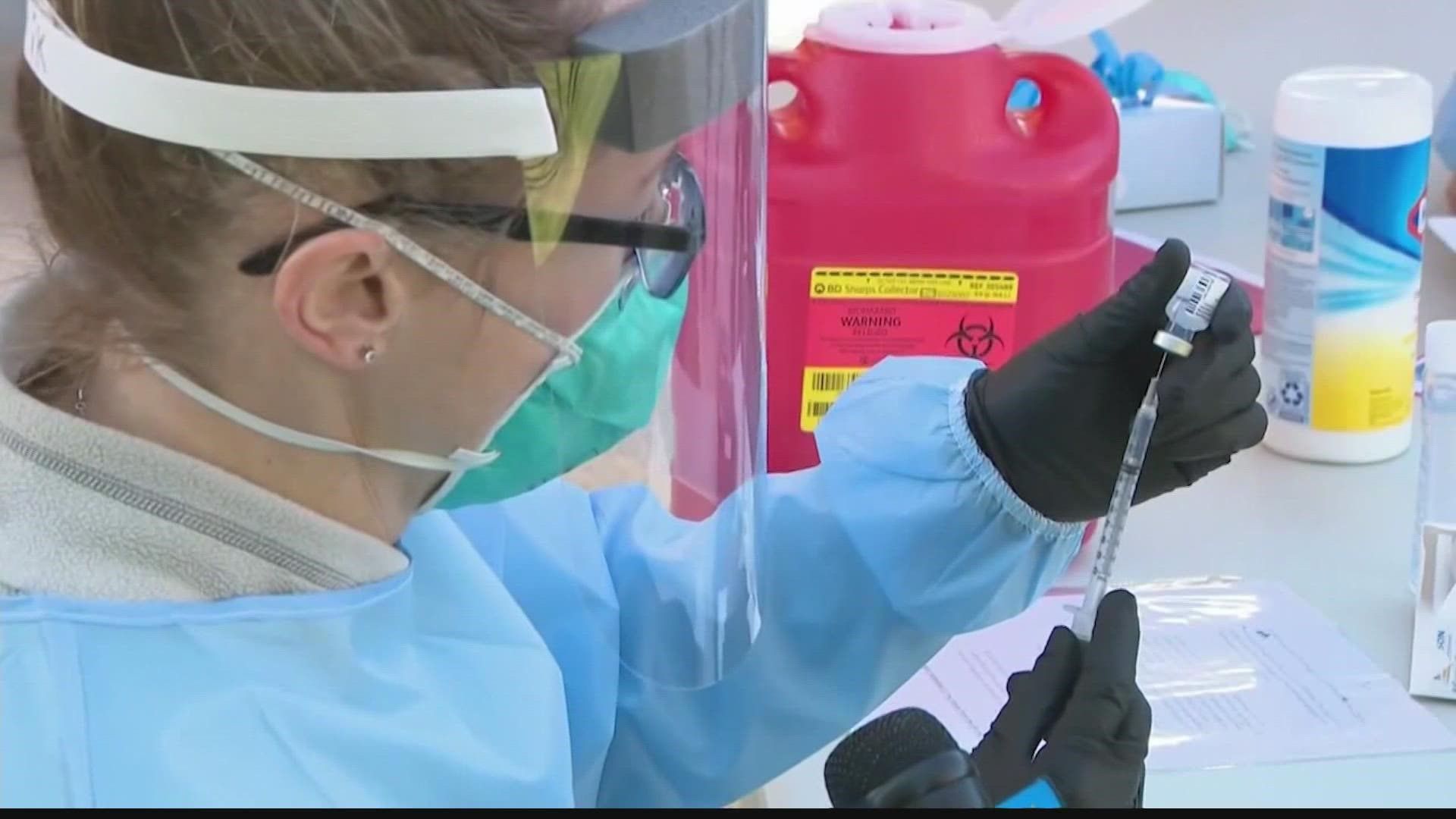BIRMINGHAM, Ala. — As the delta strain of COVID-19 continues to worsen across areas with low vaccination rates, many are turning to monoclonal antibody infusion to help treat symptoms of the virus.
University of Alabama at Birmingham Professor Turner Overton, M.D., says the infusion is effective, but people still need to be vaccinated to receive the strongest protection against hospitalization due to COVID-19.
What is monoclonal antibody infusion for COVID-19?
Antibodies are proteins made by the immune system to clear infections. For viruses, like the COVID-19 virus, these proteins are critical to stop the infection.
“The problem is that our immune system takes two to three weeks to make good antibodies,” Overton said. “Monoclonal antibodies are supplemental antibodies that can be administered early in the course of infection — the first 10 days after symptoms commence — to rapidly bind and kill the COVID virus. This infusion can be lifesaving if given in the first 10 days of symptoms.”
How effective is monoclonal antibody therapy?
Overton says monoclonal antibody infusion reduces risk of hospitalization by 70 percent in high-risk unvaccinated persons.
“It is incredibly effective if given early enough,” he said.
Is it better than getting the vaccine? Should I still get vaccinated?
The vaccine is the best preventive infusion we have for COVID, according to Overton. Antibody therapy involves molecules that bind and neutralize the virus. Although it works almost immediately, the protection will last only for a few weeks to a few months.
The National Infusion Center Association has provided a resource where people can identify sites in their area offering monoclonal antibody treatment.
“The monoclonal antibodies are not as durable as the vaccine,” he said. “The vaccine trains a healthy immune system to protect from a future infection, and the protection can last much longer.”
I’m pregnant. Do I need to consider this infusion if I have COVID?
Jodie Dionne, M.D., assistant professor in the UAB Division of Infectious Diseases, says those who are pregnant and COVID-positive should consider getting monoclonal antibody infusion.
“Studies show [monoclonal antibody infusion] is very effective in keeping people out of the hospital when people have other comorbidities,” Dionne said. “Pregnancy is listed as one of those comorbidities. The goal for these people, once diagnosed with COVID, is to get them into these clinics where they can have the antibodies to keep them out of the hospital. It doesn’t work for everybody, but we’re trying to ramp up the access for people including pregnant women so they can get access to it if they need it.”
How do I find out if I qualify for the infusion? What do I need to do?
Overton says, if you develop symptoms, please get tested for COVID as early as possible.
“If positive, contact your doctor to refer you for treatment with monoclonal antibodies,” he said. “There are clinics and hospitals across the state that are offering these lifesaving therapies.”
Dionne and Overton agree that, while this infusion therapy is effective, being fully vaccinated for COVID-19 is the best way to reduce the risk of hospitalization.
“Please get vaccinated,” Overton said. “If we could get all Alabamians vaccinated, we could get our lives back to normal.”
Editor's note: This story was originally published by UAB here.

